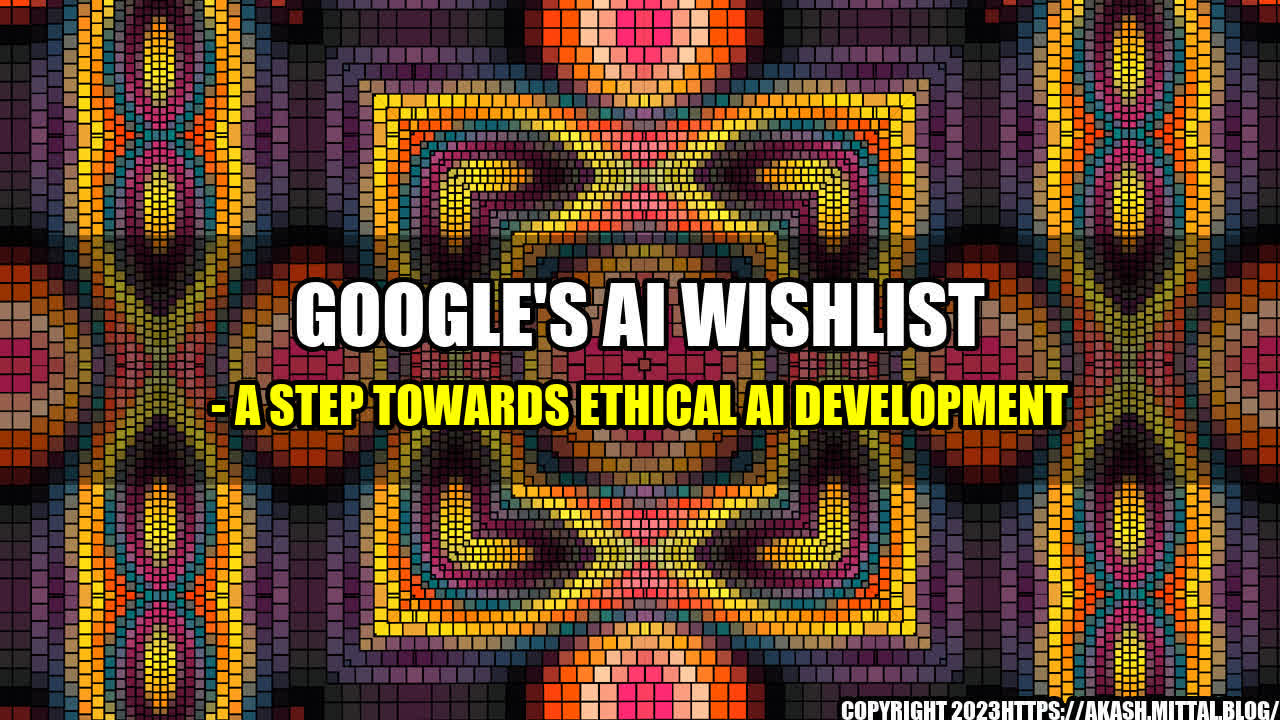Imagine a future where you can talk to your phone and it will handle all your day-to-day tasks. Now imagine that it can also monitor your health and suggest ways to improve it. All this is possible with Artificial Intelligence (AI).
However, AI development also poses risks if it is not regulated properly. The concerns revolving around data privacy, bias, and immense loss of jobs are just a few among them.
To combat these negative impacts, Google has come up with an AI regulation wishlist - an agenda that prioritizes ethical and fair AI development.
Quantifiable Examples
- Google has invested $15 million in AI research for social good, dedicated to projects such as education, disaster response, and human rights.
- In 2019, Google launched a Responsible AI Practices initiative, which has a set of AI principles in its core that helps in integrating AI in a trustworthy, inclusive, and accountable manner.
- Google has promised $10 billion to India under a digitization fund that will enable inclusive digital growth across the country. AI is one of the prominent technologies that will be leveraged to achieve this digitization.
Google's AI Wishlist
Google's wishlist aims to bring fairness, transparency, and accountability in AI development. It includes:
- Unbiased AI that is designed explicitly to overcome societal biases, is transparent and easily interpretable to eliminate algorithmic discrimination. For instance, Google has been working over a bias suite, comprising 29 metrics such as gender, race, and socioeconomic status, to keep it in check.
- Equal opportunities for every person to participate in the development and deployment of AI systems. Google's efforts in this direction include initiatives that train individuals from underrepresented communities in coding and machine learning so that they can meaningfully contribute to the development of AI technologies.
- AI that fulfills its intended purposes and does not harm society. Google has taken the stance that AI needs to be used for social good and not for technologies like facial recognition that may not support that purpose.
- Accountable AI that ensures that every person involved in the development and deployment of AI technologies should have clear accountability and responsibility for their actions.
Conclusion
Google's AI wishlist is a step in the right direction. It acknowledges the vital importance of ethical and transparent AI development that should not be detrimental to society and emphasizes the beautiful possibilities it can bring.
While setting guidelines is important, the critical issue is the implementation and enforcing of them. Therefore, Google has pledged to adopt these agendas in a way that meets their standards for responsible AI and implores other tech companies to do the same.
Google's initiative for regulation of AI technology can create a lasting and positive impact for the future. This agenda is a call to action to every organization in the tech world to regulate their AI development process and bring better, safer, and fairer AI that betters our lives and our future.

Curated by Team Akash.Mittal.Blog
Share on Twitter Share on LinkedIn